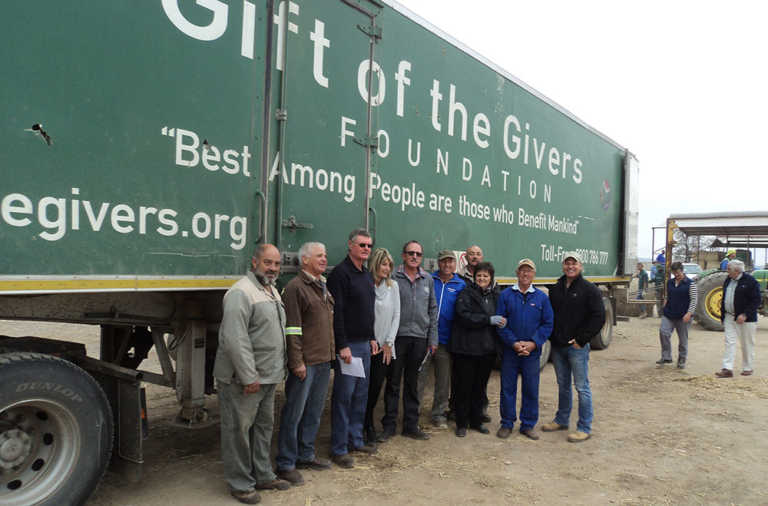
Photo: Roelof Bezuidenhout
Gift of the Givers, Boere in Nood, and Save the Sheep Sutherland have joined forces to procure fodder for 34 drought-stricken districts in the Karoo and southern Cape, where some farms have received hardly any rain over the past four years.
“Our goal is to work as a team to bring free or more affordable feed, on a monthly basis, to each of these districts,” says Hester Obermeyer, Sutherland’s media officer, who also co-ordinates the joint support action.
“It is becoming increasingly difficult to get enough feed or funds to sustain this effort. Unless government declares the whole region a disaster area and makes money from the national disaster fund available, we are facing a huge socio-economic crisis.”
The economies of many towns were collapsing, and people were losing their jobs as farming income continued to dwindle while production costs soared.
In almost all districts, flocks had shrunk by half due to poor lambing percentages and mortalities, as well as forced sales, according to Obermeyer.
“Many farmers have fallen into heavy debt and simply cannot meet their financial obligations,” she said. “At the same time, natural resources such as veld and groundwater have come under enormous pressure”
Increasing transport costs were jeopardising the mission. For example, to supply feed for an area with 100 farmers and 170 000 sheep or goats per month, required 138 000t of maize and R27 500/lorry load of 33t.
“Should fodder supplies from the summer rainfall areas in the north dry up or become more expensive, we are facing a very bleak future,” said Obermeyer.
“Eventually, drought-breaking rain will be our only salvation, but nobody can accurately predict when that will happen. Some forecasts say the Sutherland areas might still have three years or more wait.”









